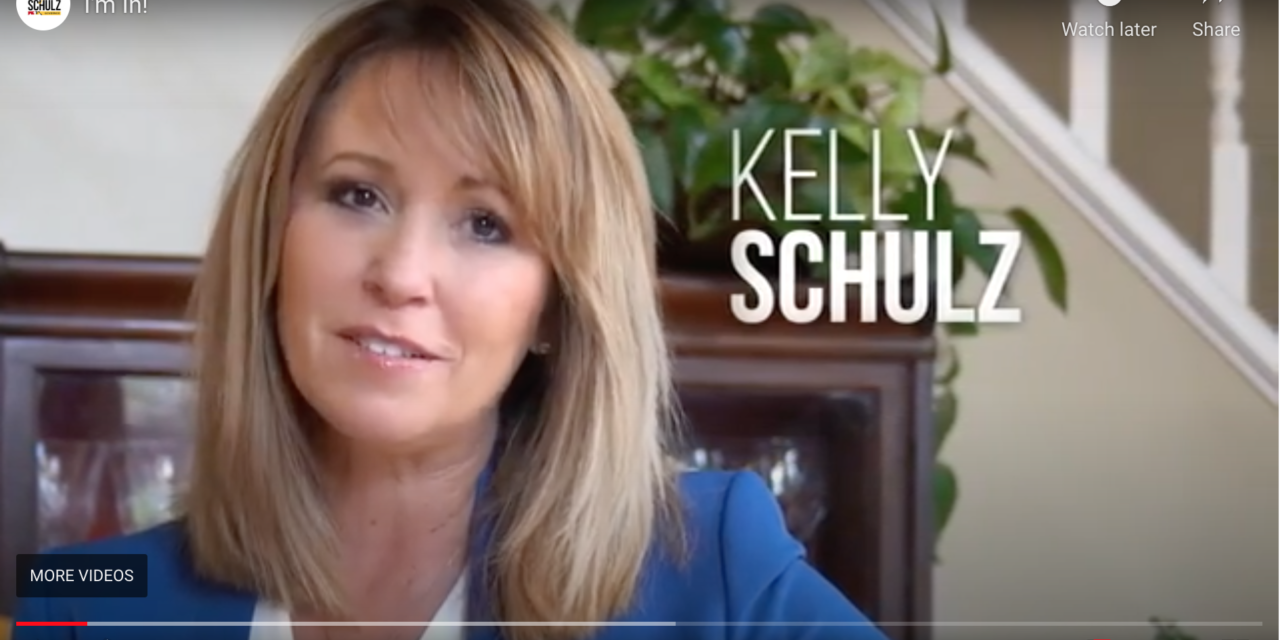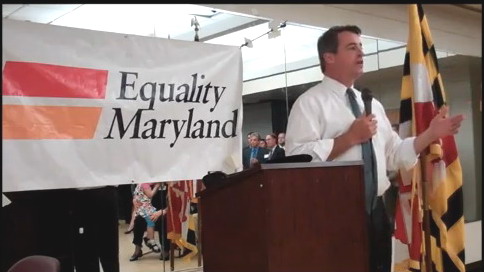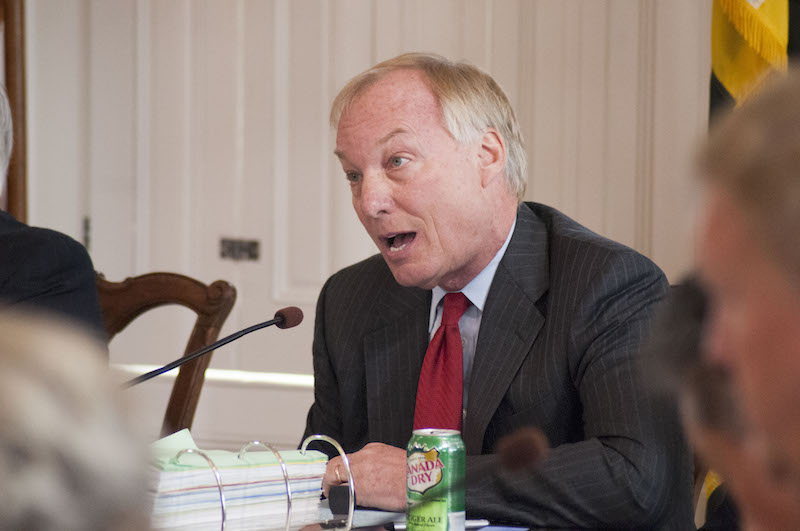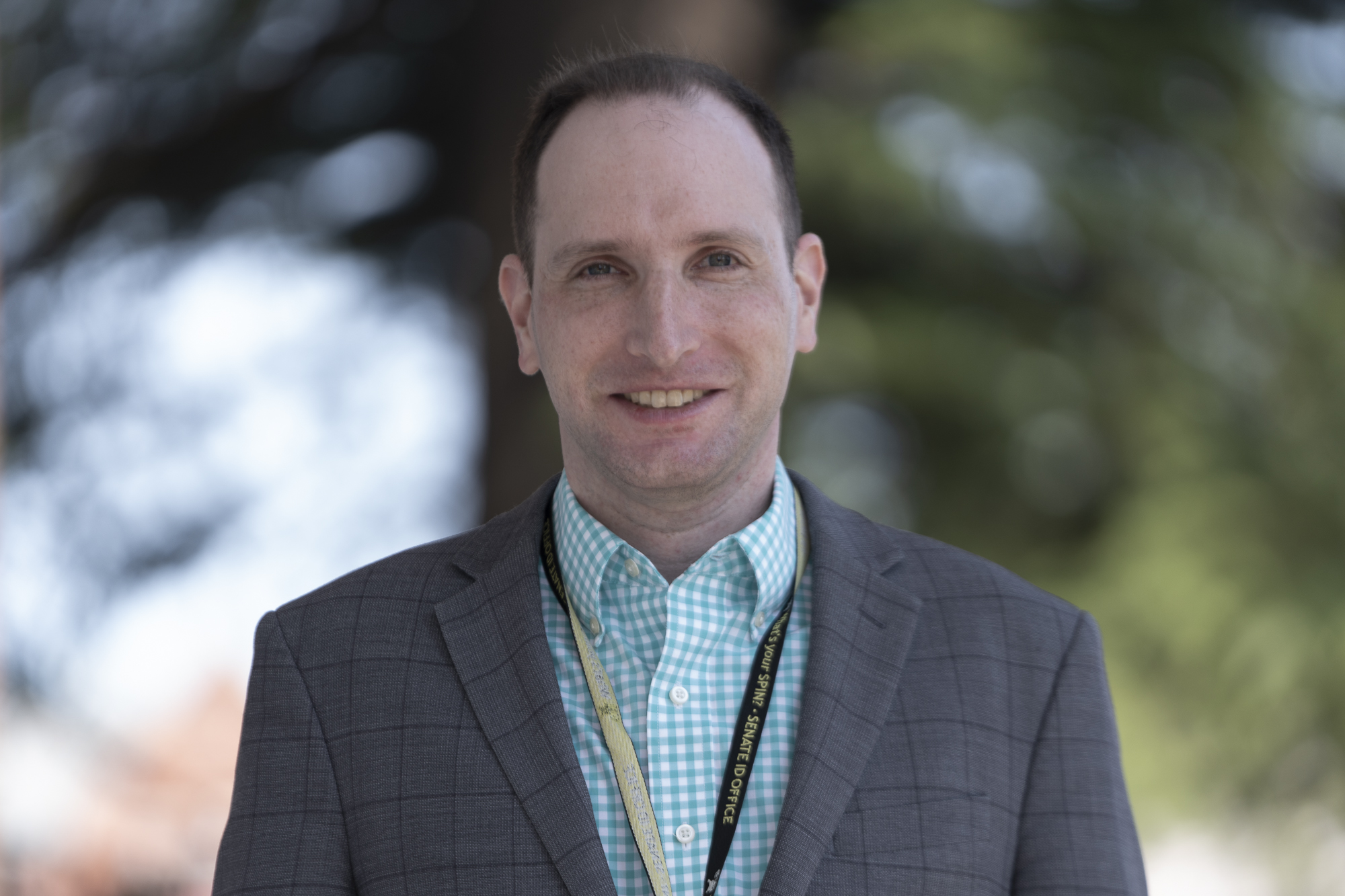Maryland Gubernatorial Candidates tackle violent crime, how to prevent mass shootings
Violent crime is on the rise throughout Maryland.
Last week saw a gunman open fire in a Smithsburg factory killing three and injuring four others.
The year is not yet even half over and already there have been more than 150 homicides in Baltimore, mostly by shooting, according to the Baltimore Police Department. That trend puts Baltimore on pace to surpass more than 300 homicides by the end of the year, which has been the case since at least 2017.
One of the most pressing issues the next governor of Maryland will have to deal with is the surge in violent crime in the state, which is directly tied to easy access to illegal handguns.
But even outside of Maryland the debate over gun violence is raging.
The recent mass shootings by lone gunmen in Buffalo and Uvalde and now Smithsburg, Md. have brought the issue back to the political forefront as Congress is being pressured to reevaluate who should be eligible to buy a gun, what type of gun, and at what age. And even with recent reports of a breakthrough bipartisan agreement on gun safety legislation, it is still unclear whether lawmakers on Capitol Hill will be able to get the measure across the finish line.
As for Maryland, the state has some of the strongest gun safety laws in the nation. But that has done little to curb gun-related violence here.
So, what is the solution?
Baltimore-Post-Examiner spoke with three of the more well-known candidates in the governor’s race to get their thoughts on how the state can help local jurisdictions like Baltimore crack down on violent crime and try to prevent mass shootings seen elsewhere in the country from happening in Maryland.
Democrat Wes Moore’s campaign did not respond to multiple requests for interviews. Democrat Tom Perez’s campaign was unable to schedule an interview by the deadline for this story.
Maryland’s primary elections will be held on Tuesday, July 19.
Former State Commerce and former State Labor Secretary-Kelly Schulz-Republican:

“We need to keep repeat violent offenders behind bars,” Schulz said. “Make sure that those who are creating all of the havoc in Baltimore City and who are repeat violent offenders-that they are in jail. Not out on low bail. Not out no bail. And increase penalties for those who are caught with illegal guns.”
Schulz’s crime plan also includes providing the city with more money to hire additional police officers and it has the support of at least seven county sheriffs throughout the state.
Schulz intimated that the city’s decision to sue a major manufacturer of “ghost guns,” which are guns that do not contain serial numbers or other tracking mechanisms, is merely a drop of water in the bucket in the fight against violent crime.
“Instead of talking about manufacturers of illegally produced guns, maybe we should look at the people who are already in our presence that have the illegal guns and keep them in jail.”
Schulz took aim at Baltimore City States’ Attorney Marilyn Mosby for her decision not to prosecute certain low-level offenses such as drug paraphernalia possession and prostitution. But Schulz said Mosby also has taken a more relaxed attitude toward the prosecution of violent offenders.
“The prosecutor has got to keep to the violent offenders and those who have illegal guns behind bars…She is not even prosecuting those that are the most heinous of the violent repeat offenders out there. Because they are back on the streets…There are laws on the books for a reason. We need to have prosecutors all over the state that prosecute people to be able to make sure that our communities are safe.”
On protecting schools from mass shooters, Schulz said the presence of SROs (Student Resource Officers) on campus is a crucial part of prevention.
Legislation enacted in 2018 requires that every public school in Maryland either have an SRO on campus or provide access to “adequate” law enforcement coverage.
“We have to make sure that the conversations that started a couple years ago about defunding the police does not necessarily go back to defunding and limiting the control of SROs in public schools. We have to make sure that the resources that are provided to schools to keep them safe for different kinds of security measures, like single-point of entry, [remain in place].”
Schulz said addressing mental health is equally crucial and emphasized that the pandemic served to highlight mental health challenges, particularly among younger people.
Former State Attorney General Doug Gansler-Democrat:

“I think it starts at the top. I think the governor has to set the tone,” Gansler, who has prosecuted cases at the local, state and federal level, said. “Change the picture. And say: This is not going to be happening in our state.”
Gansler emphasized that his crime plan calls for hiring 1,000 additional police officers, greater collaboration between police, prosecutors and judges, improved police training to generate better relations between law enforcement and the communities that they serve, the implementation of community prosecution in Baltimore, and money for 10,000 additional streetlights in high crime areas-a plan which was recently implemented in Atlanta.
“Right now, you have a situation in Baltimore where criminals think that it is ok to assassinate a police officer while they are sitting in their car. They carjack police officers. It has gotten so bad it is hard to believe…Criminals attacks people in back alleys. They are not going to attack people in bright lighted streets.”
Gansler, like Schulz, also took issue with Mosby’s decision not to prosecute certain low-level offenses.
“The job of a prosecutor is to prosecute. The job of the legislature is to make laws. When she (Mosby) decided to run for office she made a commitment to the people of the city to prosecute the laws that are on the books. You prosecute low-level crimes differently than you prosecute the more violent criminals, but you still prosecute them.”
Gansler stressed that preventing mass shootings at schools involves both having SROs on campus as well as capable mental health professionals to address the needs of students.
“We need to have an SRO at every school. The misinformation about SROs that some people try to propagate is upsetting because there is not any parent in the world that would rather have their kid not safe rather than safe in school…SROs know who is supposed to be on campus and who is not supposed to be on campus…We have a very robust mental health plan. And part of that is having a licensed mental health officer available for every 250 students. The shooters tend to be young people with mental health issues.”
Comptroller Peter Franchot-Democrat:

“We have a number of hotspots as far as crime around the state,” Franchot said, noting that “violent carjackings” are on the rise in both Montgomery and Prince George’s counties. “My recommendation will be that as governor I announce to everybody that I have zero tolerance for repeat violent offenders. And I am going to mobilize the elite law enforcement agencies of the state.”
Franchot said he would have law enforcement personnel conduct routine “sweeps” throughout areas of the state that are known to be hotspots for violent crime in order to ensure that suspects who have “open warrants” are taken off the street and detained.
“We are going to do that month after month after month until the trajectory of crime in those hotspots declines. I fully intend to announce publicly and often zero tolerance for crime. We cannot have a prosperous economy in Maryland if we do not have public safety.”
Franchot emphasized that in addition to having “zero tolerance” for violent crime, he also has “zero tolerance for police misconduct.” Franchot suggested that a return to “community policing” bolstered by “well trained” officers would go a long way toward restoring trust between communities of color and law enforcement.
Franchot declined to comment on Mosby’s decision not to prosecute certain low-level offenses.
“I am not going to point fingers at anyone. I am not into the: ‘let’s blame people for something that is happening or not happening.’ I think everybody is aware that the situation in Baltimore and other hotspots throughout the state need to be addressed.”
Franchot said the best ways to prevent mass shootings are to “establish” civil liability for gun manufacturers and to incentivize gun buybacks.
“The plaintiffs’ bar has managed to get corporations to do the right thing. What is the right thing here? It is not to flood the country and the state of Maryland with high capacity AR-15s and other weapons that are used in war…They are completely inappropriate for any kind of sporting or self-defense. They are simply designed to just kill a lot of people.”
Franchot said he supports having SROs in schools but that that in-and-of-itself is not sufficient to deter mass shooters.
“They need to be properly trained. And they need to be backed up. When someone walks in with a machine gun or an assault weapon, it is difficult for one SRO to defend that school…We need to make sure that people do not have access to weapons that are designed strictly to kill people.”

Bryan is the managing editor of Baltimore Post-Examiner.
He is an award-winning political journalist who has extensive experience covering Congress and Maryland state government. His work includes coverage of the first election of President Donald Trump, the confirmation hearings of Supreme Court Justice Brett Kavanaugh and attorneys general William Barr and Jeff Sessions, the Maryland General Assembly, Gov. Larry Hogan, and the COVID-19 pandemic.
Bryan has broken stories involving athletic and sexual assault scandals with the Baltimore Post-Examiner.
His original UMBC investigation gained international attention, was featured in People Magazine and he was interviewed by ABC’s “Good Morning America” and local radio stations. Bryan broke subsequent stories documenting UMBC’s omission of a sexual assault on their daily crime log and a federal investigation related to the university’s handling of an alleged sexual assault.

